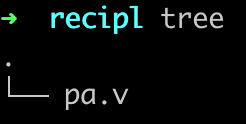CMC Theory - Coconut Milk Cake
CMC Theory - Coconut Milk Cake
This is a reciPL for the HoTT days.
Add the condensed milk in a high pan. Don’t throw away the empty condensed milk can yet! Use it to measure the milk - pour it into the can and add it to the pan. Don’t throw away the can (you’ll use it later, for measuring the heavy cream).
Split the egg yolks and whites; reserve the whites and add the yolks in the pan. Mix all the ingredients, heat it up on medium head, keep mixing everythign for about 10 minutes. Wait until it boils. Once it’s done, pour it into a cake glass tray with (something around 20cm L x 8cm H x 10cm W). Let it cool down. We name this step as foundational structural layer.
While you wait, take a pasta plate and pour 1 cup of milk and 1 tbsp of white sugar. Mix these two. Take your tea biscuits - something like this and soak them into the sugary milk. Take the humid biscuits and place them on top of the foundational structural layer you created before. Cover all the spaces.
Once you are done, take the egg whites you reserved and whip them (use a mixer if you have one, do it manually if you need to exercise your arms). Slowly add the 4 tbsp of white sugar (add one, mix it well, add the other one, mix it well, etc). The end result must be a firm sugary mix. Add the heavy cream, keep mixing. The final mixture should be a very firm topping (let’s call it upper manifold). Add this resulting manifold on top of the cookies.
Cover it with plastic wrap, take the tray to the freezer for about 6-8h.
Take it out 20min before serving
Enjoy!
It’s possible to find condensed milk in many supermarkets, even if you are not familiar with it.
When it’s too HoTT, try to prepare this reciPL in the evening and leave in the freezer overnight.
“Pavê” sounds like “to see”, or “to be seen” in Portuguese, and all sorts of daddy jokes are derived from it. Many families eat this dessert during Christmas or New Year’s dinners. There’s usually somebody to make the daddy joke: “Is to be seen or to be eaten?”. None really laughs.
The artifact is to be proven, not to be eaten:

CMC Theory - Coconut Milk Cake
Modal Carrot Cake (Diamond)
Churros
Fluffy Milk Powder Cake
rustc veggies tart (claimed ownership)
A verified implementation of Pão de Queijo
3 ingredients and strong arms, that is what you need (well, you can cheat with a mixer). This polymorphic reciPL is much cheaper than regular ice cream, and ...
The literal translation of this low-effort dish is “Rain cake”, but this is not a cake, it it does not rain (although, during the publication of this reciPL,...
This reciPL becomes low-effort if you have a pressure cooker. This is not a common item in some countries in Europe or North America, but it drastically redu...
This reciPL is perfect if you have leftovers.
Shop the ingredients in advance. This reciPL is very hard, and very expensive. Be prepared for non-trivial proofs, and possibly unprovable lemmas.
Ingredients
Ingredients
Ingredients
Ingredients
Ingredients
A Lazy implementaiton of Bread